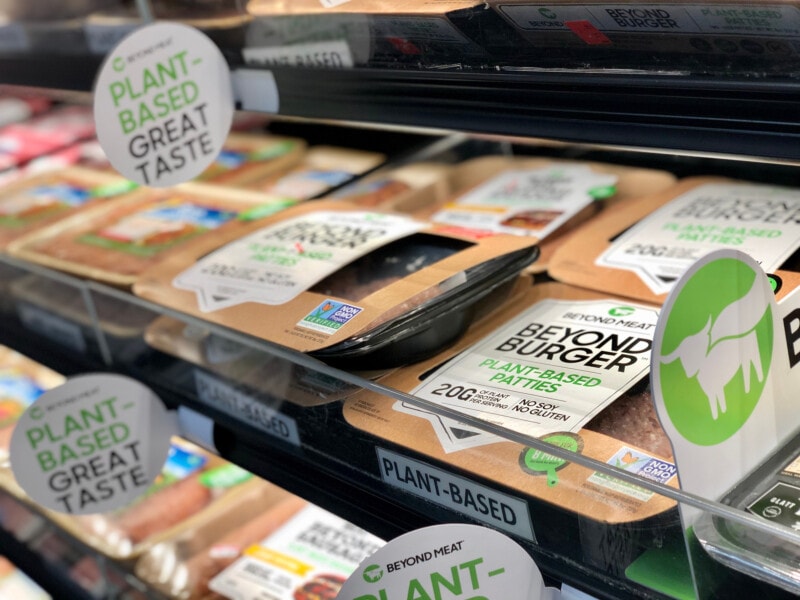When it comes to plant-based foods, business is booming. The market for meatless eats grew a whopping 27% in 2020, bringing the total value to an impressive $7 billion.
And proving that plant-based is more than just a trend, fifty-seven percent of households now purchase plant-based foods.
The Plant Based Foods Association (PBFA) and The Good Food Institute (GFI) commissioned the research from data technology company SPINS.
Plant-based milk is the largest category, taking 35% of the plant-based food market at $2.5 billion. Its sales grew twice as fast as cow’s milk; alternative milk is now purchased by 39% of U.S. households. Almond milk remains the most popular, although oat milk has skyrocketed to second place. Oat milk saw sales more than triple in 2020 and has grown 25-fold since 2018.
Meats are next up, with sales increasing 45% in 2020 up to $1.4 billion. The plant-based meat category grew twice as fast as animal meat and is now 2.7% of retail packaged meat sales. 18% of U.S. households now buy plant-based meat, up from 14% in 2019.
“The data tells us unequivocally that we are experiencing a fundamental shift as an ever-growing number of consumers are choosing foods that taste good and boost their health by incorporating plant-based foods into their diet,” says PBFA Senior Director of Retail Partnerships Julie Emmett. “As this industry surpasses the $7B threshold, PBFA is excited to continue our work to help build a sustainable infrastructure, including domestic ingredients sourcing, for this growing demand to expand access to plant-based foods.”
The pandemic has reportedly contributed to the rise in market share of plant-based foods, with consumers becoming more conscious of sustainability, food safety and animal welfare issues and looking for alternatives to traditional animal products.
According to Mintel, 35% of U.S. consumers agree with the statement ”the Covid-19/coronavirus pandemic proves that humans need to eat fewer animals.”
And, considering that a plant-based diet is the best way to lose weight as well as the key to longevity, this shift in consumer behavior bodes well for society’s overall health.
“The plant-based category has evolved to the point that retailers can’t limit who they consider the plant-based shopper,” says SPINS Head of Retail Dawn Valandingham. “They should now assume everyone is a potential plant-based buyer and educate them enough to see the possibilities. Between the innovation in plant-based products and the gradual return to less restrictive shopping measures, 2021 offers many opportunities for retailers to appeal to more customers and expand their plant-based offerings.”
- Farm Air Pollution Causes 17,900 Deaths Every Year - May 11, 2021
- Plant-Based Sales Booming; Up 27% to $7 Billion in 2020 - April 8, 2021
- Fruits and Veggies Will Help You Live Longer, Says New Study - March 4, 2021







